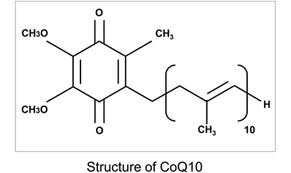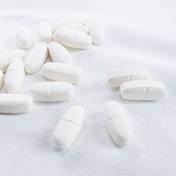Tag Archives: selenium
Selenium deficiency link to diseases of ageing
UK health experts warn of selenium diet deficiency

London: An intake of 50 micrograms a day of selenium in addition to the usual dietary intake is required to maintain optimal selenium blood levels according to a new UK study.
Commenting on the study and the need for selenium in our diets, Dr Carrie Ruxton, independent nutrition advisor to the Health Supplements Information Service notes: “In the UK, intakes of selenium are low. Data from the 2006 UK Total Diet Study showed that the mean intake of selenium was 48-58 micrograms a day, which is below the UK recommended intake of 75 micrograms a day for men and 60 micrograms a day for women.
Similar findings emerged from the latest UK National Diet and Nutrition Survey (NDNS) in which intakes of selenium fell below the Reference Nutrient Intake (RNI) in both adults and older children. Adult women overall achieved 72% of the RNI. while adult men achieved 74% of the RNI. Around half of adult women and older girls and a fifth of men and older boys had intakes below the Lower Reference Intake (LRNI). Such low intakes are associated with reduced blood levels of selenium and significantly increased risk of mortality in both Europe and the US.
In this new study, the aim was to evaluate the amount of selenium required to establish optimal blood levels of this essential nutrient. A randomized controlled trial was carried out in which 199 healthy men and women aged 50-64 years, living in the UK were divided into 6 groups and studied for 12 weeks. Four groups were given selenium enriched yeast tablets containing 50, 100 or 200 micrograms of selenium each day, or placebo tablets. The other two groups were given either selenium-enriched onion meals, providing 50 micrograms of selenium daily, or unenriched onion meals providing 4 micrograms selenium daily.
Blood levels of selenium increased in all the groups which consumed additional selenium from supplements or diet. There was a significant difference in blood levels of selenium between the supplement group and those taking the placebo tablet. However, there was no significant difference in blood levels between those consuming the enriched meals and those consuming the unenriched meals.
Moreover the blood levels of those taking the 50 microgram tablet increased by 28.3% while the blood level of those consuming the 50 microgram enriched onion diet increased by just 8.6%. This suggests that the selenium enriched diet was much less effective at increasing blood levels than the selenium supplement.
The study concluded that to establish optimal selenium status required the addition of a 50 microgram daily selenium supplement to the usual daily dietary intake of approximately 55 micrograms. These findings suggest that adequate selenium intakes are not being achieved in the UK by diet alone and that either a multi-nutrient or selenium supplement taken daily can help to ensure an optimal selenium status.
___________________________________
RNI: Reference Nutrient Intake. The amount of a vitamin or mineral that is enough to ensure that the needs of nearly all the group are being met.
LRNI: Lower Reference Nutrient Intake. The amount of a vitamin or mineral considered to be sufficient for the few people in a group who have low needs. Most people will need more than the LRNI and if people consistently consume less they may be at risk of deficiency of that nutrient.
Selenium helps reduce bladder cancer risk

New York: Increasing selenium levels may help to significantly reduce a womans risk of developing bladder cancer, according to new research from the American Association for Cancer Research
Researchers measured selenium levels in the toenails of 767 people with bladder cancer and 1,108 people without the disease. Whilst no link was found between selenium levels and bladder cancer risk for the population as a whole, the mineral did significantly reduce the risk of bladder cancer in certain groups of people women, moderate smokers, and those with p53 positive cancer.
Lead researcher Margaret Karagas said: “Ultimately, if it is true that selenium can prevent a certain subset of individuals, like women, from developing bladder cancer, or prevent certain types of tumors, such as those evolving through the p53 pathway, from developing, it gives us clues about how the tumors could be prevented in the future and potentially lead to chemopreventive efforts.”
Longevity affect of selenium limited

New York: The health protection of the mineral selenium are associated only with moderate levels of the supplement, a new report has found.
While moderate levels of the mineral are associated with longevity, once selenium levels climb past a certain mark, the odds of dying from any cause, or from cancer specifically, begin to tip upward, a new study suggests.
The study, of nearly 14,000 US adults, found that higher blood levels of selenium were linked to a lower risk of death over 12 years, at which point the risk appears to increase.
The findings, published in the Archives of Internal Medicine, support earlier studies linking selenium to lower risks of prostate, lung and colon cancers. But the study also “raises the concern that high-normal levels of selenium may be associated with an increased risk of mortality,” write the researchers, led by Dr. Joachim Bleys of Johns Hopkins University School of Public Health in Baltimore.
Selenium is a mineral that people require in small amounts; food sources include grains, certain nuts and some meats and seafood, such as beef and tuna.
The body incorporates selenium into proteins called selenoproteins, which act as antioxidant enzymes; antioxidants, in turn, help neutralize cell-damaging substances called free radicals. Some studies have linked higher selenium levels to lower risks of certain cancers and heart disease.
However, much of the research has been done in countries where people’s selenium levels are often fairly low.
Most Americans do get more than the recommended amount of selenium. While the recommended dietary allowance (RDA) is only 55 micrograms per day, the typical intake in the from 60 to 220 micrograms daily. They found that as the participants in the study whose blood levels of selenium increased, their odds of dying during the 12-year study period declined.
But once blood levels of selenium surpassed 130 ng/mL, the benefits stopped accruing; and once they passed 150 ng/mL, the odds of dying from any cause, or from cancer in particular, began to creep back up.
The findings caution against consuming too much selenium, according to the researchers.
It is not clear why high-normal selenium levels were tied to an increased death risk. But in theory, Bleys explained, excess selenium that is not incorporated into selenoproteins may actually generate free radicals rather than fight them.
Selenium may cut risk of arthritis
New York: Researchers in the US believe that low levels of the mineral selenium could increase the risk of osteoarthritis in the knees.
Levels of selenium were measured in the toenail clippings and those with high levels were found to have half the risk of developing severe osteroarthritis in their knees.
The conclusion is that the mineral acts as a protective antioxidant but more research is necessary to prove this.
Arthritis link to lack of vital mineral
New York: US researchers have shown that shortage of a mineral is linked to knee arthritis.
Selenium, which occurs naturally in the soil and found in brazil nuts, shellfish, tuna, wholegrains and eggs, is believed to have anti-ageing properties and has been shown to protect men against prostate cancer.
The US study of 940 volunteers found that even tiny amounts of the mineral could protect against knee arthritis. For every additional tenth of a part per million of selenium in participants’ bodies, there was a 15% to 20% reduction in risk.
Those who had less of the mineral than normal in their systems faced a higher risk of osteoarthritis in one or both knees. The severity of disease was related to how low the selenium levels were.
Study leader Dr Joanne Jordan, of the University of North Carolina at Chapel Hill, said: “We are very excited about these findings because no one had ever measured body selenium in this way in relationship to osteoarthritis.
“Our results suggest that we might be able to prevent or delay osteoarthritis of the knees and possibly other joints in some people if they are not getting enough selenium. That’s important because the condition, which makes walking painful, is the leading cause of activity limitation among adults in developed countries.”
Volunteers were enrolled into the Johnston County Osteoarthritis Project, a continuing investigation of the disabling condition that was launched 15 years ago. It was the experience of people in severely selenium-deficient areas of China that led Dr Jordan to suspect that the mineral might play a role in preventing osteoarthritis.
In those regions, people frequently develop Kashin-Beck disease, which causes joint problems relatively early in life. Dr Jordan’s team compared the extent of knee osteoarthritis shown on X-rays with the amount of selenium in each volunteer’s body. Selenium was measured in toenail clippings taken from the participants. “We found that when we divided the participants into three groups, those with the highest selenium levels faced a 40% lower risk of knee osteoarthritis than those in the lowest-selenium group,” said Dr Jordan.




